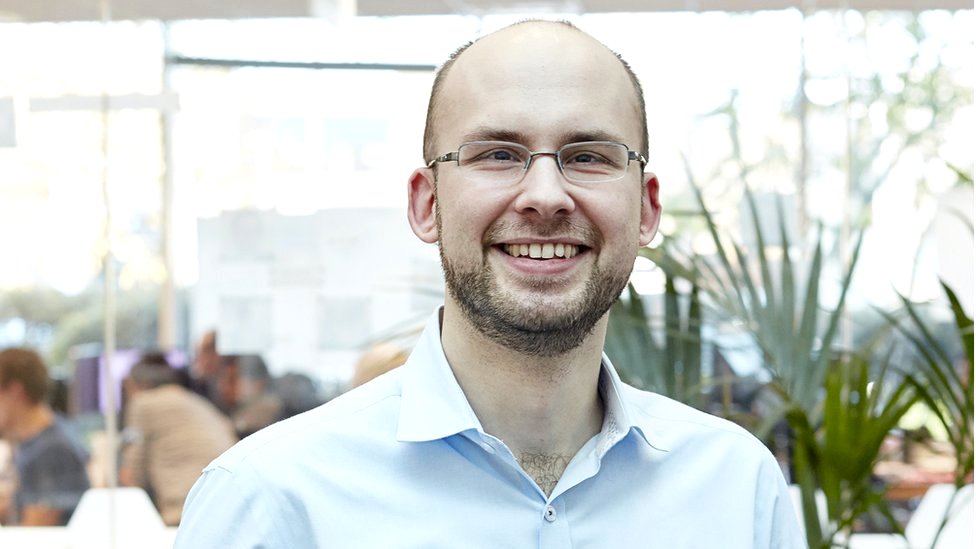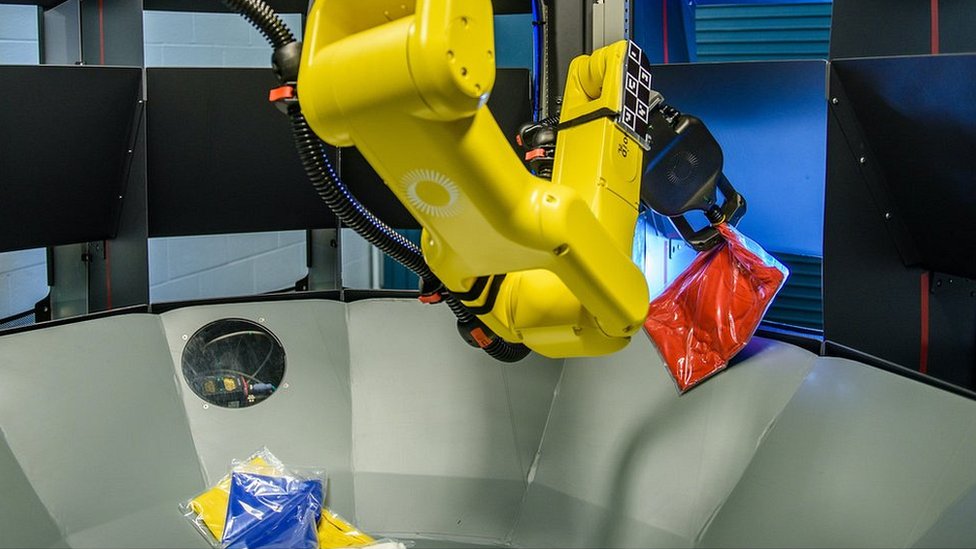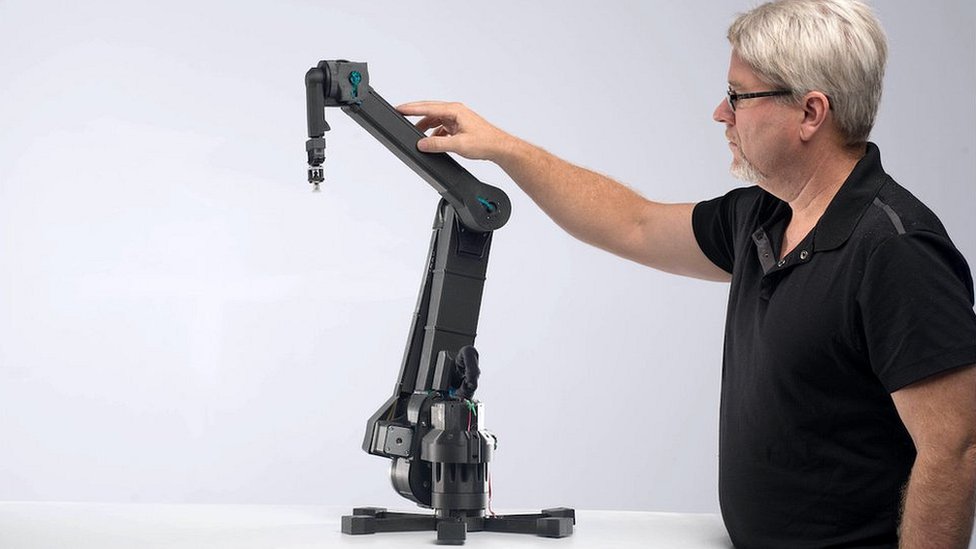Dhaka, 18 November, TV24 Desk: The next time you pack your bags at the supermarket checkout, give yourself a small pat on the back.
A task which is so simple for humans – quickly and efficiently packing a bag of groceries of different sizes and shapes without crushing anything – is something that until recently has been beyond the abilities of robots.
It requires vision systems to locate the produce, a flexible and strong hand to grab items and a sophisticated artificial intelligence which knows that a carton of eggs should not be stacked under a four-pint bottle of milk.
It is a problem that James Matthews, the chief executive of Ocado Technology (part of the Ocado Group) is wrestling with in the warehouses that handle online orders.
The company has a sophisticated warehouse in Erith in east London, which is already highly automated.

Hundreds of robots zip around a grid, collecting groceries and bringing them to a member of staff who will pack them into boxes, which are then loaded on to trucks for delivery.
“We’re typically picking say 50 different items of different shapes and sizes, and how dense we pack them is absolutely critical to the economics of our business.
“If we put one thing per box on the road, then we’re going to use a lot of vans very inefficiently.”
Ocado sell its system to supermarkets all over the world, but those customers are demanding ever greater efficiency, so training robots to pack the bags would make economic sense.
The company had already been working with five robotic arms at the Erith warehouse,
“It’s a very challenging space. It’s not one where you can plot a very direct path to a solution there. Some of this stuff is still warm from academia,” says Mr Matthews.
But now the process is accelerating with two big acquisitions. Ocado is paying $262m (£198m) for Kindred Systems, a San Francisco-based firm that makes a robotic sorting systems.
In addition, it is buying Las Vegas-based Haddington Dynamics for $25m (£19m) which makes lighter-weight, and highly sensitive robotic arms.
Kindred’s sorting system is already used to pick products in clothing warehouses, including some owned by Gap.

Mr Matthews thinks this tech can be adapted and developed for the grocery sector.
“The two systems, we now intend to bring together. It will have some of our machine learning models that is very specific to grocery problems, and it will have some aspects of the Kindred platform that they’ve gone much deeper on.”
In particular, Kindred is more advanced on tele-operation, or supervised autonomy, which is where humans monitor and control multiple robots remotely.
“They [Kindred] can watch hundreds of these robots. And in the very small percentage, but critical moments, when the robot needs some help, they can provide that remote system very, very effectively.”
So over the next year Ocado will be training the artificial intelligence used by Kindred, on grocery products.
The company hopes to have a robot that can replace human pickers within two or three years, but people will not be completely replaced.
“I think we are going to see an acceleration of the deployment of automation in the next three to five years. And so that’s going to take a big bite out of those manual tasks. But I suspect in 10 years, there’s still going to be a sizable portion of activities that are human led,” says Mr Matthews.

Mr Matthew is less forthcoming about the way Ocado plans to use technology from Haddington Dynamics, the maker of lightweight robotic arms, which can move very precisely.
“We’ve got some interesting, somewhat ‘secret squirrel’ use cases where lighter is a big play,” he says.
Mr Matthews is not giving much away, but says there is a limit to what a robotic arm can do if it just uses cameras to sense objects – imagine packing a bag if you could only use your eyes and not feel the products.
Haddington’s robotic arms are highly sensitive, so Ocado is researching how they might be integrated into the warehouse system. Source : BBC
